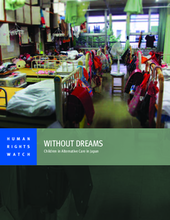Displaying 21 - 30 of 32
Beginning next January, foster parents in Japan who intend to adopt a child in their care will be granted one year of child care leave under a new law enacted this week, according to this article from the Japan Times.
Meant to highlight the maxim that every child deserves the best that we all have to give; this book provides a review of the progress made since The UN Convention on the Rights of the Child. It contains reports from 21 countries on the status of the rights of the child. The countries are: Australia, Canada, Croatia, Denmark, France, Germany, Greece, India, Iran, Japan, Portugal, Romania, Scotland, Serbia, Solomon Islands, Spain, the Netherlands, the UK, the USA, Uzbekistan and Venezuela. There are no reports from Africa.
The government of Japan is considering extending foster care services to young people up to the age of 20, according to this article from the Japan Times.
This article from the Tokyo Weekender sheds light on the adoption situation in Japan.
This conference - held October 11-12, 2015 in Osaka, Japan - aims to bring together leading academic scientists, researchers and research scholars to exchange and share their experiences and research results about all aspects of Social Work, Education and Social Development.
This video investigates a children’s care home in Japan, one of about 600 such institutions in the country.
This Masters thesis paper, by Michael Maher King of the University of Oxford, reviews the situations of children in institutional alternative care in Israel and Japan.
This report by Human Rights Watch examines Japan’s alternative care system for children. It describes its organization and processes, presents current data on the use of different forms of alternative care and highlights the problems found in the institutionalization of most children (including infants), as well as abuses that take place in the system.
La pratique répandue au Japon de placer des enfants vulnérables dans des institutions au lieu de foyers familiaux prive des milliers d’entre eux de l’opportunité de se préparer à une vie productive et indépendante au sein de la société japonaise, a déclaré Human Rights Watch dans ce nouveau rapport.
La pratique répandue au Japon de placer des enfants vulnérables dans des institutions au lieu de foyers familiaux prive des milliers d’entre eux de l’opportunité de se préparer à une vie productive et indépendante au sein de la société japonaise, a déclaré Human Rights Watch dans ce nouveau rapport.


